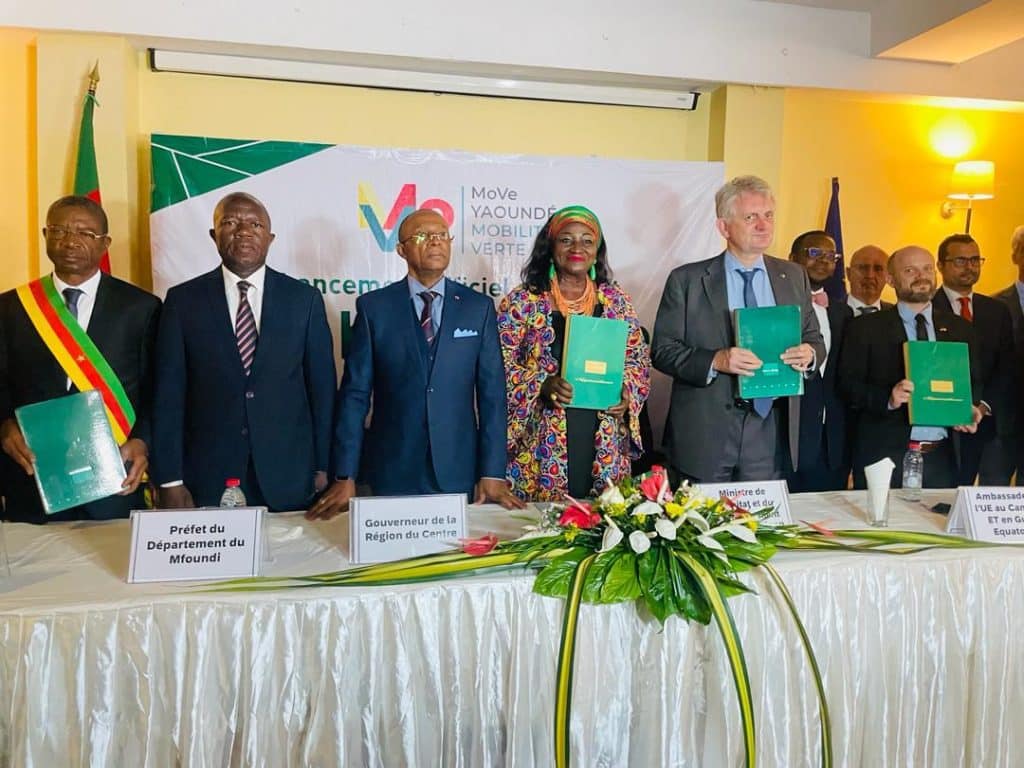After several months of waiting, we now know a little more about the Mobilité verte (MoVe) project, which aims to decongest the city of Yaoundé, home to 4 million inhabitants. The project involves the construction of a Bus Rapid Transit (BRT) network of some thirty stations between now and 2026, and its entry into service in 2028.
The first corridor (22 km) of this road infrastructure, dubbed “Trans Yaoundé”, will serve up to 100,000 passengers a day in barely an hour on the Olembe-Ahala route. These extension districts, located at the northern and southern exits, are notorious for endless traffic jams and accidents due to the intensity of economic and industrial traffic.
A situation coupled with air pollution that the Yaoundé municipality (project owner) is fed up with. The Cameroon government will therefore be mobilizing 6.8 million euros (4.4 billion CFA francs) from the European Union (EU) represented in Cameroon by experienced ambassador Jean-Marc Châtaigner, the French Development Agency (AFD) and Germany as “principal partners” in the future Yaoundé BRT.
Read also-JEICOM23: in Yaoundé, the 2nd meeting preaches for greener, more resilient cities
“With the ratification of the Paris Agreement in 2015 and the national vision of Emergence 2035, Cameroon has made a commitment to more sustainable urban development, at the heart of which lies the transformation of the physiognomy of cities and the improvement of their attractiveness for a better quality of life for populations”, explains Célestine Ketcha Courtès. Cameroon’s Minister of Housing and Urban Development (MINHDU) was speaking at the launch of the “MoVe” project, which focuses on inclusive, resilient and sustainable mobility.
Benoit-Ivan Wansi
